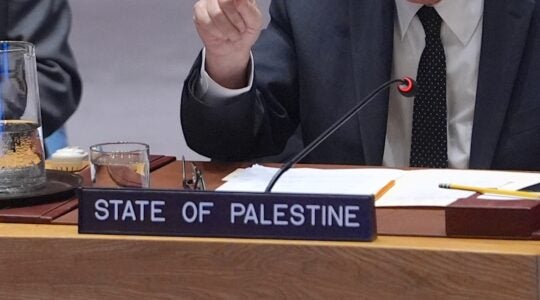In the “Who’s Creating ‘Daylight’ Now?” (Sept. 28), Rabbi Eric Yoffie, immediate past president of the Union for Reform Jewry, is quoted as saying: “The cardinal rule of American-Israeli relations is that neither country interferes in the national elections of the other.” Really?
When Ehud Barak ran against Benjamin Netanyahu, then President Bill Clinton unapologetically did precisely that — sending in money and political consultants to completely manipulate Israel’s election in favor of Barak. Clinton did this to impose his mandate for Israeli-Palestinian peace negotiations with Palestinian President Yasser Arafat, which, as you recall, ended in an intifada when Arafat was faced with the prospect of an Israel ready to make the concessions asked of it. Clinton later regretted pushing Israel to make peace with Arafat. Nevertheless, Rabbi Yoffie’s statement of “a cardinal rule” is historically unsupportable; his use of such a rule to condemn Netanyahu’s advocacy is unfair and harmful to Israel’s effort to head off a nuclear Iran.
President Barack Obama has strung Israel along for the past year (if not longer) demanding that Israel take no unilateral military action against Iranian nuclear sites while, in return, giving only vague promises that the United States would not allow Iran to achieve a nuclear weapon. We now know from United Nations observers that Iran used this grace period provided by Obama, courtesy of his diplomatic efforts, to hide much of its uranium-refining capability beyond the reach of Israel’s military capacity. During that same period, Netanyahu has tried in vain — through diplomatic channels — to secure some assurance from the United States that if Iran crossed a certain line enabling it to obtain weapons-grade uranium, the United States would threaten Iran with a military strike. Having repeatedly failed in these behind the scenes, quiet, diplomatic efforts, Netanyahu was left with no choice but to make a public demand for Obama to draw such “red lines.”
Manhattan
The New York Jewish Week brings you the stories behind the headlines, keeping you connected to Jewish life in New York. Help sustain the reporting you trust by donating today.




